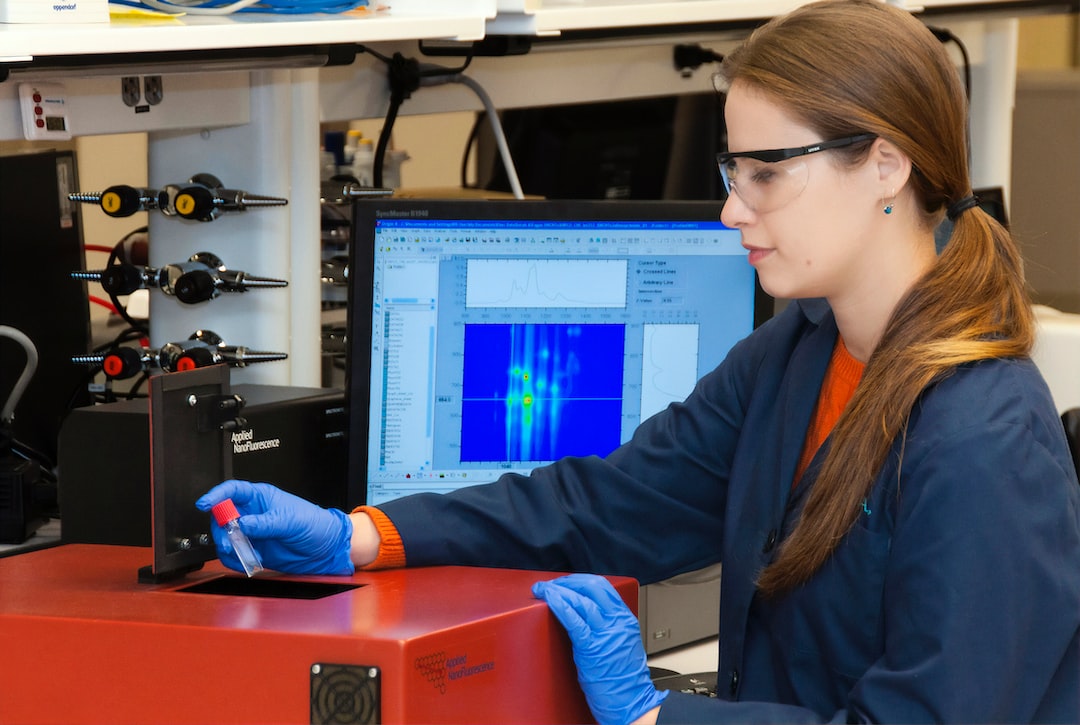
Advancements in technology have revolutionized the field of genetics, allowing us to delve deeper into the complexities of the human genome. One such breakthrough comes from Google DeepMind, who has recently launched AlphaMissense, an innovative tool designed to predict disease-causing genetic mutations. This powerful artificial intelligence (AI) tool harnesses the capabilities of machine learning and neural networks to provide accurate predictions and insights into genetic mutations.
AlphaMissense: Predicting Genetic Mutations
Introduction to AlphaMissense
AlphaMissense is a cutting-edge AI tool developed by Google DeepMind. Its primary objective is to predict the impact of genetic mutations on protein structure and function. By analyzing the vast amount of available genetic data, AlphaMissense can identify missense variants. Missense variants refer to a specific type of genetic mutation, that may lead to the development of various genetic diseases. This revolutionary tool opens up new avenues for understanding the underlying causes of genetic disorders and provides a foundation for potential treatment strategies.
Utilizing Machine Learning for Genetic Mutation Prediction
At the core of AlphaMissense lies machine learning, a powerful technique that enables the prediction of genetic mutations with exceptional accuracy. By training the AI model on a vast dataset containing 71 million possible missense variants, the algorithm can analyze the impacts of single-letter mutations on protein sequences. Through an iterative process, AlphaMissense learns to differentiate between pathogenic mutations that cause disease and benign variants that have no significant effect on protein function.
Understanding Missense Variants
Missense variants are a type of genetic mutation where a single nucleotide substitution in the DNA sequence results in the replacement of one amino acid with a different amino acid in the corresponding protein. These mutations can have varying effects on protein structure and function, ranging from benign to pathogenic. AlphaMissense aims to identify and classify missense variants based on their likelihood of causing disease, providing valuable insights into the genetic landscape of various disorders.
AlphaMissense and Google DeepMind

Google DeepMind’s Contribution to Genetic Mutation Prediction
Google DeepMind has been at the forefront of developing cutting-edge AI technologies, and their foray into genetic mutation prediction with AlphaMissense is no exception. By leveraging the vast computational resources and expertise in machine learning, DeepMind has created a powerful tool that has the potential to revolutionize genetic research and pave the way for personalized medicine.
Integration of Alphafold in AlphaMissense
One of the key components of AlphaMissense is the integration of Alphafold, another state-of-the-art AI tool developed by Google DeepMind. Alphafold revolutionized protein structure prediction by accurately predicting the 3D structure of proteins. By incorporating Alphafold’s predictions into the analysis, AlphaMissense can assess the impact of missense variants on protein structure, providing a more comprehensive understanding of their potential effects.
Benefits of DeepMind’s AI Technology
DeepMind’s AI technology brings several advantages to the field of genetic mutation prediction. Firstly, its ability to process and analyze vast amounts of genetic data enables the accurate classification of 71 million gene mutations. This extensive dataset provides a wealth of information for researchers, helping them identify potential disease-causing mutations. Additionally, the integration of machine learning algorithms allows for the identification of patterns and correlations that may not be apparent to human researchers, leading to new discoveries and breakthroughs.
The Power of AlphaMissense
Accurate Classification of 71 Million Gene Mutations
With its extensive dataset and advanced AI algorithms, AlphaMissense can accurately classify the impact of 71 million genetic mutations. This remarkable feat provides researchers with a comprehensive understanding of the genetic landscape of various diseases and facilitates the identification of potential therapeutic targets.
Identification of Disease-Causing Mutations
One of the primary goals of AlphaMissense is the identification of disease-causing genetic mutations. By accurately predicting the pathogenicity of missense variants, the tool can pinpoint mutations that significantly impact protein function and potentially cause genetic disorders. This knowledge empowers researchers to develop targeted treatments and therapies that address the root causes of these diseases.
Pathogenicity Classification and Variant Effect Prediction
AlphaMissense goes beyond predicting the pathogenicity of missense variants. It also provides insights into the specific effects these mutations have on protein function. By understanding how these genetic changes alter protein structure and activity, researchers can gain crucial insights into the mechanisms underlying disease development, leading to more effective treatment strategies.
The Impact of AlphaMissense in Genetic Research

Advancements in Genetic Disease Studies
AlphaMissense has the potential to revolutionize genetic disease studies by providing researchers with a powerful tool to analyze and understand missense variants. The AI tool’s ability to accurately predict the impact of these mutations on protein structure and function opens up new avenues for elucidating the underlying causes of genetic disorders. This, in turn, enables the development of targeted therapies and preventive strategies.
Expanded Knowledge of Missense Variants
By analyzing vast amounts of genetic data, AlphaMissense increases our understanding of missense variants and their potential implications. With access to a comprehensive database of missense mutations in the human genome, researchers can gain valuable insights into the prevalence and distribution of these variants, helping them identify novel disease associations and further our understanding of genetic diversity.
Potential Applications in Precision Medicine
The insights provided by AlphaMissense have significant implications for precision medicine. With a more comprehensive understanding of the impact of missense variants on protein function, researchers can develop personalized treatment strategies tailored to an individual’s unique genetic makeup. This targeted approach has the potential to revolutionize healthcare by optimizing treatment outcomes and minimizing adverse effects.
Future Developments of AlphaMissense

Continued Improvements in Prediction Accuracy
DeepMind remains committed to advancing the accuracy and capabilities of AlphaMissense. Ongoing research and development efforts aim to further refine the AI model, enhancing its ability to predict the impact of genetic mutations on protein structure and function. This continuous improvement ensures that AlphaMissense remains at the forefront of genetic mutation prediction tools.
Integration with Other AI Tools and Databases
DeepMind recognizes the importance of collaboration and integration with other AI tools and databases. By combining the insights gleaned from AlphaMissense with other state-of-the-art technologies, researchers can gain a more comprehensive understanding of genetic mutations and their effects. This collaborative approach encourages the exchange of knowledge and fosters innovation in the field of genetics.
Collaboration with the Scientific Community
Google DeepMind actively seeks collaboration with the scientific community to advance genetic research and the capabilities of AlphaMissense. By fostering partnerships and sharing knowledge, DeepMind aims to accelerate the development of breakthroughs in genetic mutation prediction and drive progress in the field of personalized medicine.

